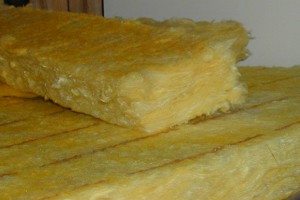Filtration - Pharmaceutics I (Unit Operations I) - B.Pharm - Sem 1
Pharmaceutics I (Unit Operations I) Syllabus :
1. Filtration
Theory and mechanism of filtration process, factors affecting rate of filtration, filter media, filter aids, types of filters, operation of filters, industrial filters-leaf filter, filter press, rotary filter, edge filters, cartridge filters, membrane filters, optimum cleaning cycle in batch filters, etc. Mathematical problems on filtration.
Definitions
Filtration - Filtration is the process of separation of solid from fluid by passing the same through the porous medium that retains solid but allows the fluids to pass through.
Clarification - When solid are present in very low concentration in fluid, ex. Not exceeding 1.0 w/v, the process of its separation from liquid is called as clarification.
Cake Filtration - If recovery of solid is desired, filtration process is called as cake filtration.
Straining - When we need to remove large visible particles by using coarse filtration medium(cotton wool or muslin), the process is called as straining.
Terminologies Used in Filtration
Slurry/Feed - The suspension of solid & liquid to be filtered is known as Slurry/FeedFilter Medium - The Porous medium used to retain the solid is described as the filter medium.
Filter cake - After Filtration, accumulation of solid on filter medium is known as Filter cake.
Filtrate - Clear liquid passed through the filter is known as filtrate
Example of Filtration:
Most common example is making of a tea. When we prepare a tea, we need to separate tea leaves from tea. So Filter or a sieve is used to filtering tea from tea leaves. Through the sieve pores, only liquid tea will pass, tea leaves will remain on the sieve. The liquid which we got after filtration is called as filtrate & water is filtrate.Process of Filtration
- Porous of the filter medium should be smaller than the size of particles to be separate.
- Filter medium(Filter paper) is placed on the support(mesh)
- Slurry is placed over the filter medium
- Due to pressure difference across the filter fluid flows through the filter medium
- Gravity will acting over the medium & solid are retained on the surface of the medium
Factors Affecting Rate of Filtration
- Pressure
- Viscosity
- Surface Area of Filter Media
- Temperature of Liquid to be filtered
- Particle Size (Clogging with fines)
- Pore size of filter media
- Thickness of Cake
- Nature of Solid material (Porosity of Filter Cake)
Application of Filtration
- Production of Sterile products
- HEPA Filter / Laminar Air Bench
- Membrane Filters
- Production of Bulk Drugs
- Production of Liquid Dosage
- Waste water treatments
Filter Media
The surface on which solids are retained after filtration process is called as Filter Medium.Properties of Ideal Filter Media
- High retention power
- Absorb negligible amount of Materials
- Resistant to corrosive action of liquid
- Chemically inert
- Sufficient Mechanical Strength
- Size of Particles to be filtered
- Nature of Product to be filtered
- Amount of liquid to be filtered
Types of Filter / Filter Media Types
1. Filter Paper
Filter paper is most common filter medium used in filtration process as it offers controlled porosity, low cost and limited absorption characteristic. |
| Image Credit: labfriend |
Filter papers are available in different grades and quality based on pore size such as fine, medium and coarse.
Drawbacks
- They shed very fine particles to the filtrate
- Absorb properties of liquid
2. Cotton Wool
Cotton wool is used for filtering moderately coarse particles. Small tough of cotton is placed at the neck of funnel while filtering. |
| Image Credit: wisegeekhealth.com |
Drawback
- It sheds Fine cotton hair in the filtrate
3. Glass Wool
If we want to filter the highly corrosive chemicals, we can use glass wool. As Cotton wool or filter paper will not be able to work with corrosive chemicals such as strong acids, alkalies or oxidizing agents. |
| Image credit: Wikipedia |
Drawback:
- It may contaminate the filtrate with glass fibers


Comments
Post a Comment